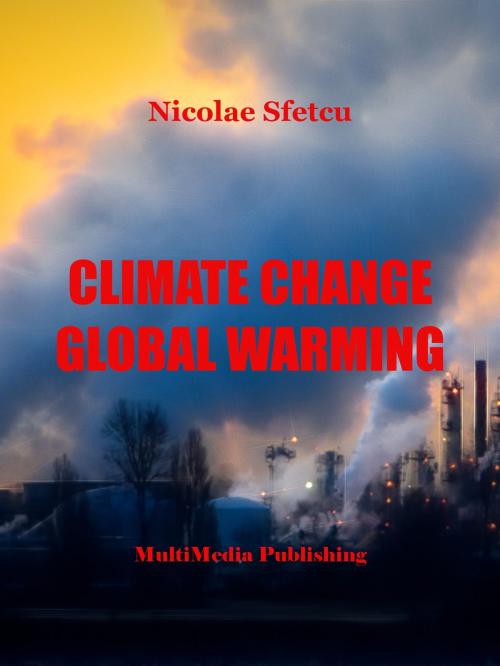Climate Change: Global Warming
Nonfiction, Social & Cultural Studies, Political Science, Government, Public Policy, Science & Nature, Science, Earth Sciences| Author: | Nicolae Sfetcu | ISBN: | 9786069466896 |
| Publisher: | Nicolae Sfetcu | Publication: | August 29, 2018 |
| Imprint: | Smashwords Edition | Language: | English |
| Author: | Nicolae Sfetcu |
| ISBN: | 9786069466896 |
| Publisher: | Nicolae Sfetcu |
| Publication: | August 29, 2018 |
| Imprint: | Smashwords Edition |
| Language: | English |
A brutal and catastrophic warming could put humanity in short-term risk, a climate hypothesis that was first presented as highly speculative and subject to more science fiction than a serious prospective, before taking consistency by the scientists from the Rio Summit, and the difficulties of implementing the Kyoto Protocol. This possibility is beginning to be considered by the futurists, including the Intergovernmental Panel on Climate Change (IPCC), under the aegis of the UN, then a university report synthesis and evaluation that a large and abrupt changes may jeopardize all or part of humanity, biodiversity or societies and ecosystems to adapt capacities. The large press is gradually echoed, referring to the international climate negotiations "more difficult than on nuclear disarmament" and risking "the future of humanity".
Tens of thousands of deaths are attributed to heat waves. Floods are expected to increase. The Arctic is warming faster than other European regions, resulting in a doubling of melting of the Greenland ice cap. The sea has risen, with local isostatic variations. Impacts are expected on the flora (flowering, tree diseases..., but also on wildlife: zoonoses, range change) and diseases (ticks, some mosquitoes and sandflies go back further north and at altitude). The pollen season is longer. The plankton is changing and - outside marine environments - the migration/adaptation speed of many species is insufficient compared to the speed of biological and geoclimatic disturbances, which aggravates the risk of extinction. Agricultural yields are expected to decrease to the south and perhaps increase to the north.
The reality of risk and the phenomenon is now almost consensus. Faced with the problem, three approaches complement each other: fight against greenhouse gas emissions, carbon sinks, and adaptation.
A brutal and catastrophic warming could put humanity in short-term risk, a climate hypothesis that was first presented as highly speculative and subject to more science fiction than a serious prospective, before taking consistency by the scientists from the Rio Summit, and the difficulties of implementing the Kyoto Protocol. This possibility is beginning to be considered by the futurists, including the Intergovernmental Panel on Climate Change (IPCC), under the aegis of the UN, then a university report synthesis and evaluation that a large and abrupt changes may jeopardize all or part of humanity, biodiversity or societies and ecosystems to adapt capacities. The large press is gradually echoed, referring to the international climate negotiations "more difficult than on nuclear disarmament" and risking "the future of humanity".
Tens of thousands of deaths are attributed to heat waves. Floods are expected to increase. The Arctic is warming faster than other European regions, resulting in a doubling of melting of the Greenland ice cap. The sea has risen, with local isostatic variations. Impacts are expected on the flora (flowering, tree diseases..., but also on wildlife: zoonoses, range change) and diseases (ticks, some mosquitoes and sandflies go back further north and at altitude). The pollen season is longer. The plankton is changing and - outside marine environments - the migration/adaptation speed of many species is insufficient compared to the speed of biological and geoclimatic disturbances, which aggravates the risk of extinction. Agricultural yields are expected to decrease to the south and perhaps increase to the north.
The reality of risk and the phenomenon is now almost consensus. Faced with the problem, three approaches complement each other: fight against greenhouse gas emissions, carbon sinks, and adaptation.















